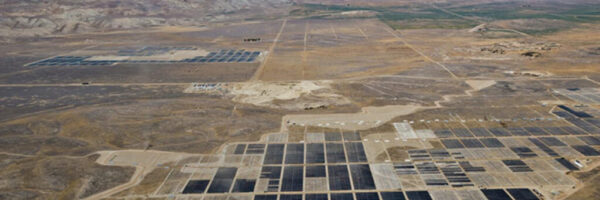
More evidence linking air pollution to mental health problems, study finds
By Shannon Kelleher
Long-term exposure to a cocktail of common air pollutants, even at low levels, is associated with increased risk for depression and anxiety, according to a new study published this week.

Postcard from California: The Mojave Desert should not be a solar sacrifice zone
The Mojave Desert is a national treasure: a crucial habitat for thousands of indicator species, including the bighorn sheep and desert tortoises that are supposed to be protected under federal law, and the fantastical Joshua tree, found almost nowhere else on earth.

EPA failing to regulate water pollution from oil refineries, says new report
Millions of gallons of unregulated wastewater generated at oil refineries are flowing into US waterways every day, a regulatory failure endangering public health, according to a report released Thursday.

New life for fishing gear aims to help address ocean plastic pollution
By Lena Beck
On the shores of southwest Washington state, little pieces of thick yellow rope sometimes wash ashore among tangles of seaweed and broken shells.

US politics complicates bid to protect nature
By Shannon Kelleher
It’s been a month since the United Nations Biodiversity Conference (COP15) ended with a historic international agreement aimed at expanding efforts to protect and preserve land, water and ecosystems around the globe.

Updated approach to regulating chemicals is “urgently needed,” say scientists
By Grace van Deelen
The US regulatory system for chemicals is not adequately protecting human health, and an overhaul is urgently needed, according to recommendations made this week by a group of environmental and health scientists.

Report finds “vicious cycle” between pesticide dependence and climate change
By Shannon Kelleher
Pesticide use is a significant factor in harmful climate change, contributing to greenhouse gas emissions in multiple ways, according to a report issued this week.

New US research finds “worrying” evidence linking Monsanto weedkiller to cancer
By Carey Gillam
New research by top US government scientists has found that people exposed to the widely used weed killing chemical glyphosate have biomarkers in their urine linked to the development of cancer and other diseases.

Common food additive associated with type 2 diabetes risk
By Grace van Deelen
Chemical compounds commonly used to cure ham, bacon and other meats are associated with type 2 diabetes risk, according to new research.

Fishing fans take note: New study shows eating what you catch could be hazardous to your health
By Grace van Deelen
People who eat just one US freshwater fish a year are likely to show a significant increase of a cancer-causing chemical in their bloodstream, new research warns.